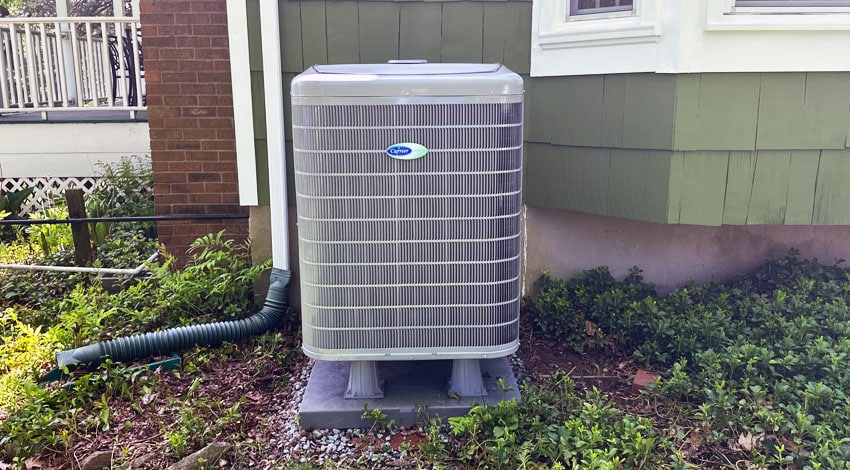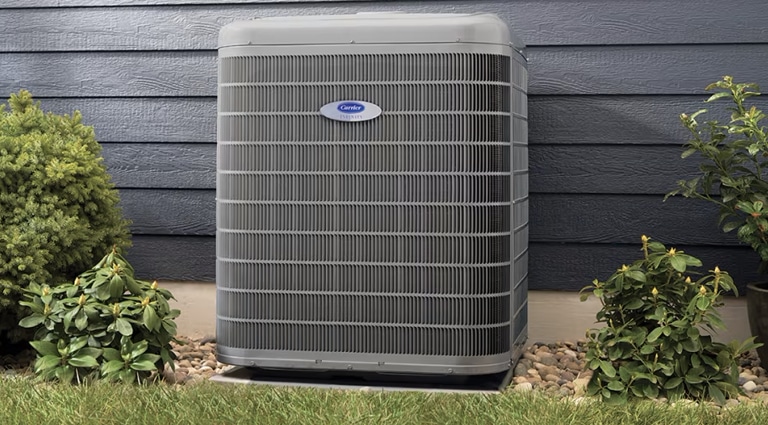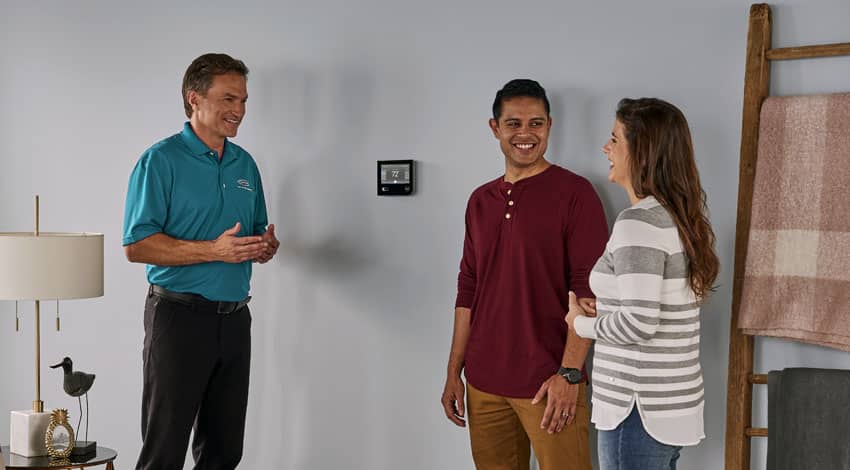What is a Heat Pump?
A heat pump is a versatile component of home heating and cooling systems, installed outside your home. Unlike traditional air conditioners, which only cool, a heat pump can both heat and cool your home. During colder months, it extracts heat from the outdoor air and transfers it indoors. In warmer months, it reverses the process, removing heat from the indoor air to cool your home. Powered by electricity and utilizing refrigerant to transfer heat, heat pumps offer a year-round comfort solution without burning fossil fuels, making them an environmentally friendly option.
Types of Heat Pumps
Air-Source Heat Pumps
Air-source heat pumps are the most common type used in residential settings. They transfer heat between indoor and outdoor air and are effective for both heating and cooling.
Ground-Source Heat Pumps (Geothermal)
Ground-source heat pumps, or geothermal heat pumps, transfer heat between your home and the ground. Although more expensive to install, they are typically more efficient and have lower operating costs due to the consistent ground temperature throughout the year.
How Do Heat Pumps Work?
Heat pumps operate by transferring heat rather than generating it. This process involves moving heat from one location to another using refrigerant as a medium. Here’s a closer look at the key components and functions:
Key Components
- Outdoor Unit: Contains a coil and a fan to facilitate heat exchange.
- Indoor Unit (Air Handler): Similar to the outdoor unit, it contains a coil and a fan to circulate air throughout the home.
- Refrigerant: The substance that absorbs and rejects heat within the system.
- Compressor: Pressurizes the refrigerant, allowing it to flow through the system.
- Reversing Valve: Changes the direction of refrigerant flow, enabling the system to switch between heating and cooling.
- Expansion Valve: Regulates the flow of refrigerant, reducing its pressure and temperature.
Heating and Cooling Modes
Cooling Mode
- Evaporation: Liquid refrigerant absorbs heat from indoor air, evaporating into gas.
- Compression: The gas is compressed, increasing its temperature.
- Condensation: The hot gas releases heat outside, condensing back into a liquid.
- Expansion: The refrigerant is depressurized and cooled, ready to absorb heat again.
Heating Mode
- Evaporation: Refrigerant absorbs heat from outdoor air, even in cold temperatures.
- Compression: The refrigerant is compressed and heated.
- Condensation: The hot refrigerant releases heat inside the home.
- Expansion: The refrigerant cools and is ready to absorb more heat.
Best Climates for Heat Pumps
Heat pumps are ideal for milder climates but can be used in colder regions when paired with a furnace in a dual fuel system. This setup allows the heat pump to handle moderate temperatures, with the furnace kicking in during extreme cold.
Installation and Maintenance
Proper installation is crucial for optimal performance. Professional HVAC technicians should handle the installation, ensuring correct sizing, electrical connections, and ductwork. Regular maintenance, including filter changes and system inspections, can extend the lifespan of your heat pump and maintain its efficiency.
Common FAQs
Do Heat Pumps Use a Lot of Electricity?
Heat pump electricity usage varies based on unit size, efficiency, and climate. They typically consume between 6,176 and 10,244 kWh annually.
Is a Heat Pump Expensive to Run?
Operational costs depend on local energy prices, system efficiency, and climate. In moderate climates, heat pumps are cost-effective compared to fuel-burning systems. However, in colder regions, they may require more energy.
What is the Downside to a Heat Pump?
The main drawback is reduced efficiency in extremely cold temperatures (below zero), potentially necessitating supplemental heating.
Conclusion
Heat pumps are a versatile, energy-efficient option for year-round home comfort. Understanding their operation and benefits can help you make informed decisions about your home heating and cooling needs. For expert advice on heat pump installation, repair, and maintenance, contact Air Professionals Heating and Air Conditioning.
Additional Resources
For more information on ductless heat pump solutions and to determine the best system for your home, give us a call.





